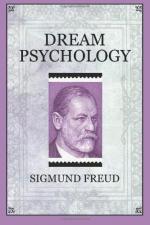After learning from the first analytical explanations that the dream conceals sense and psychic validity, we could hardly expect so simple a determination of this sense. According to the correct but concise definition of Aristotle, the dream is a continuation of thinking in sleep (in so far as one sleeps). Considering that during the day our thoughts produce such a diversity of psychic acts—judgments, conclusions, contradictions, expectations, intentions, &c.—why should our sleeping thoughts be forced to confine themselves to the production of wishes? Are there not, on the contrary, many dreams that present a different psychic act in dream form, e.g., a solicitude, and is not the very transparent father’s dream mentioned above of just such a nature? From the gleam of light falling into his eyes while asleep the father draws the solicitous conclusion that a candle has been upset and may have set fire to the corpse; he transforms this conclusion into a dream by investing it with a senseful situation enacted in the present tense. What part is played in this dream by the wish-fulfillment, and which are we to suspect—the predominance of the thought continued from, the waking state or of the thought incited by the new sensory impression?
All these considerations are just, and force us to enter more deeply into the part played by the wish-fulfillment in the dream, and into the significance of the waking thoughts continued in sleep.
It is in fact the wish-fulfillment that has already induced us to separate dreams into two groups. We have found some dreams that were plainly wish-fulfillments; and others in which wish-fulfillment could not be recognized, and was frequently concealed by every available means. In this latter class of dreams we recognized the influence of the dream censor. The undisguised wish dreams were chiefly found in children, yet fleeting open-hearted wish dreams seemed (I purposely emphasize this word) to occur also in adults.
We may now ask whence the wish fulfilled in the dream originates. But to what opposition or to what diversity do we refer this “whence”? I think it is to the opposition between conscious daily life and a psychic activity remaining unconscious which can only make itself noticeable during the night. I thus find a threefold possibility for the origin of a wish. Firstly, it may have been incited during the day, and owing to external circumstances failed to find gratification, there is thus left for the night an acknowledged but unfulfilled wish. Secondly, it may come to the surface during the day but be rejected, leaving an unfulfilled but suppressed wish. Or, thirdly, it may have no relation to daily life, and belong to those wishes that originate during the night from the suppression. If we now follow our scheme of the psychic apparatus, we can localize a wish of the first order in the system Forec. We may assume that a wish of the second order has been forced back from the Forec. system into the Unc. system, where alone, if anywhere, it can maintain itself; while a wish-feeling of the third order we consider altogether incapable of leaving the Unc. system. This brings up the question whether wishes arising from these different sources possess the same value for the dream, and whether they have the same power to incite a dream.




